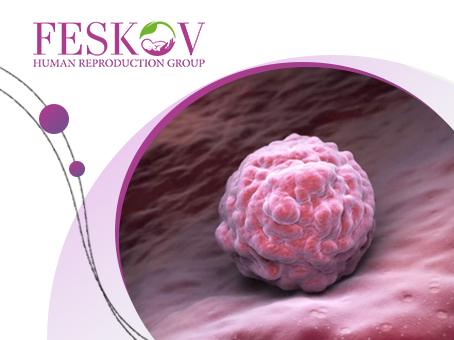
Endometrium Preparation for Embryo Transfer: How does it work

Women planning to achieve pregnancy through IVF often lack knowledge about their reproductive health. In particular, about the medical procedures leading up to embryo transfer.
- Concept of endometrial preparation for embryo transfer
- Drugs used to prepare the endometrium
- Monitoring endometrial thickness and quality
- Timing of embryo transfer
In particular, about the medical procedures leading up to embryo transfer. Some women with fertility problems think: «The fertility clinic near me» will inform me about everything». Another part wants to know in advance what to expect.
This article is about the preparation of the endometrium, a procedure that is a major determinant of reproductive health and pregnancy.
Concept of endometrial preparation for embryo transfer
Recall that the endometrium is the mucous membrane lining the cavity inside the uterus. Pregnancy occurs if the embryo is successfully inserted into this membrane. The endometrial blood vessels supply the placenta with oxygen and nutrients to enable the growth and development of the foetus. Abnormalities of the endometrial tissue can be the cause of infertility, unsuccessful IVF and failure to conceive.
The following parameters must be met for a successful pregnancy after embryo transfer:
- Optimal endometrial thickness of 9-11 mm;
- A large number of blood vessels;
- High concentration of secretory cells.
All these parameters are monitored by the doctors of the reproductive clinic by means of ultrasound monitoring, vaginal examinations, hysteroscopy, seeding, biopsy. In addition to these signs, the structure is assessed: the presence of adhesions, polyps, hyperplasia has a negative impact on the implantation process and therefore requires treatment.
Based on the results of the examinations and a general assessment of the fertility of the patient, a decision is made on the further course of the reproductive program: fertility treatment, the need for hormone supplementation by the patient or surrogate mother in the framework of preparation for IVF.
Drugs used to prepare the endometrium
Hormone therapy involves taking estradiol and progesterone.
Estradiol stimulates blood circulation in the uterus, increases the thickness of the endometrium and normalises the synthesis of female sex hormones.
Progesterone ensures the transfer of the endometrium to the "secretory" stage, reduces the immune response of the maternal body to the embryo (as a half foreign organism), reduces the rate of cell division of endometrial tissue. Progesterone preparations are prescribed before and after IVF. This measure helps to support the process of embryo implantation.
Monitoring endometrial thickness and quality
Monitoring endometrial thickness by ultrasound and blood estradiol levels helps to determine the implantation window - the moment when conception is most likely to occur. In addition, receptivity is assessed - the degree of readiness of the uterine mucosa for implantation of the foetal egg. In addition to ultrasound, this parameter is assessed by immunohistochemical examination, ERA test and hysteroscopy during vaginal examination.
Timing of embryo transfer
The timing of embryo transfer is determined by the doctor, taking into account the assessment of endometrial readiness and synchronisation with the implantation window, when the likelihood of embryo attachment is highest. The 5th day after follicle puncture is considered optimal. If at this stage it is not possible to achieve the necessary endometrial thickness or the implantation window has shifted, the patient may be recommended to freeze the embryos and repeat hormonal therapy in the next menstrual cycle.
If all parameters are normal, an embryo transfer (in some cases two) is performed and the implantation is supported with progesterone preparations.
Do not worry if the procedure is postponed: transferring cryopreserved embryos does not reduce their ability to implant. And a review of the medical strategy may increase the likelihood of achieving a successful pregnancy in the next cycle.
- Surrogate motherhood - how not to be deceived
- Advantages of guaranteed surrogacy programs over programs with guaranteed compensation
- Surrogacy in Mexico: What You Need to Know
- Disadvantages of Egg Donation - Only Truth about the Procedure
- Unique Cases of Giving Birth to Children
- How the History of Surrogacy Changed Over the Years
- Why I Chose Surrogate Motherhood with Feskov
- Age limit for surrogacy: international standards
- The First Meeting: 5 Helpful Tips for Surrogates & Intended Parents
- Pregnancy After Miscarriage: Getting Pregnant
- Surrogacy in Ukraine: Legal Aspects
- Women's Age And Fertility
- Embryo evaluation: understanding embryo quality assessment
- Historical Changes to Surrogate Laws in Israel
- TOP 5 surrogate clinics in Ukraine
- International Surrogacy Program Ukraine-Canada
- Why is surrogacy so expensive — what do you pay for
- 15 facts about Surrogacy
- Egg donation in Canada
- Unique Cases of Giving Birth to Children
Join my mailing list to receive the latest news and updates
